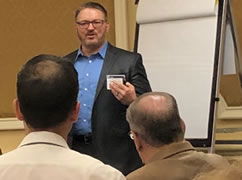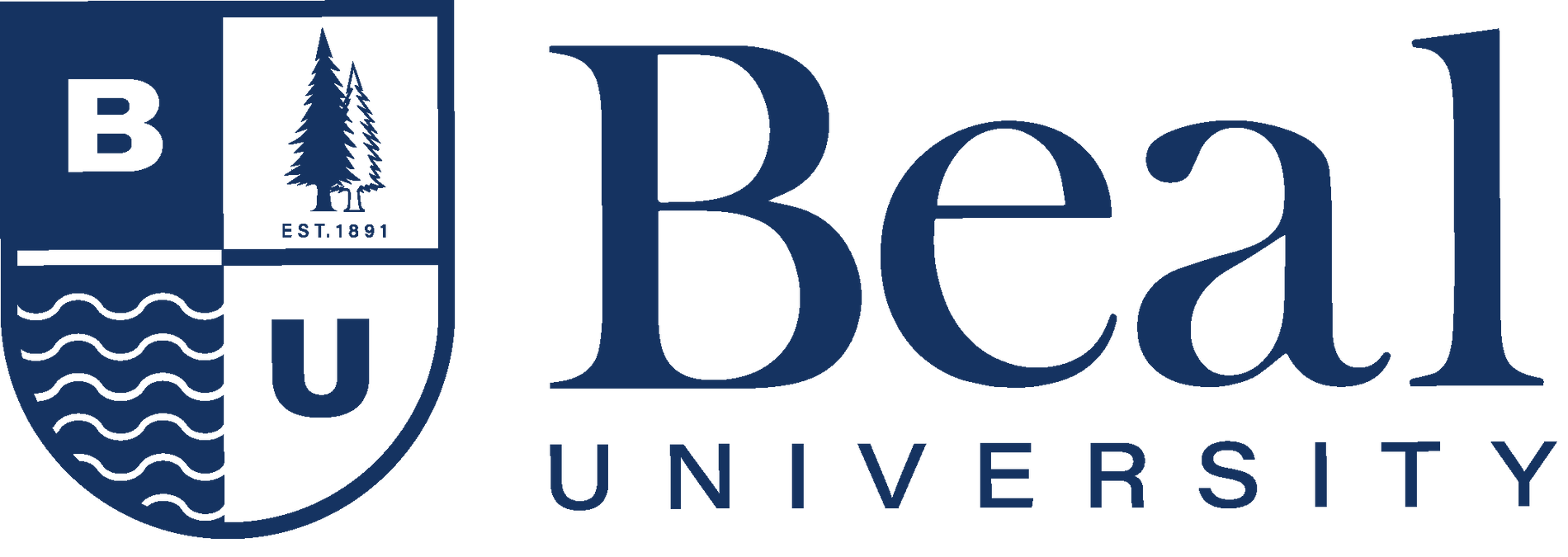Students know him as the instructor of Introduction to Sociology, but Beal College is now benefiting from Dr. Mark Hardgrove’s years of administrative experience in his new role as Director for Curriculum Development.
To help introduce Dr. Hardgrove to the school and community, Beal English instructor Paul England gave him the opportunity to tell us about his career, his new position, and advice for students new to learning in an online environment.

Paul: Your LMS profile mentions you have spent some time living in Maine, and currently live in Georgia. What led you to Beal?
Dr. Hardgrove: My wife and I met at Loring, AFB in Maine back in the mid-1980s, but we left Maine in ’86 so I could attend Seminary in Cleveland, Tennessee. From Seminary we took our first pastorate in Kansas, where we served 3 years, before moving to Georgia, near Atlanta, to serve as associate pastor of Christian education for a large church. In 2000 we became pastors of a church in Conyers, Georgia, where we have served for the past 19 years. During that time I also became involved in higher education, starting as an adjunct professor at Beulah Heights University (BHU), earning the rank of Professor, then serving as the Chair for Graduate Studies, Associate Dean for Distance Education, and eventually, Dean and VP for Academic Affairs.
Through my acquaintance with leadership at Beal College, the opportunity to teach sociology online at Beal was opened to me, and because of my background in online education with BHU, they asked if I would be willing to serve Beal College as Director for Curriculum Development, and I agreed.
Paul: You’ve taught sociology at Beal; how does a good grounding in this field inform your other professional work?
Dr. Hardgrove: My background in sociology has been of tremendous value, as it has helped me both in pastoring and in higher education. My course in sociology of the family helped with my understanding of the social dynamics of families, while the course in sociology of the city provided profound insight into the dynamics of a city like Atlanta that has undergone significant re-gentrification (a term I first learned in my sociology classes). Likewise, sociology of religion, criminology, and other behavioral studies classes have equipped me with a significant understanding of the social impact of culture and community on human behavior.
Paul: Your LMS profile mentions you have published several books and articles. What can you tell us about your current, or most recent, writing project?
Dr. Hardgrove: I’ve had many articles published over the years, both in popular press and peer reviewed journals. My most recent work was the “PTS Thrive Manual,” which is the operations manual for a million-dollar Lilly Foundation grant awarded to my seminary. The focus of the grant is providing mentoring and coaching for new pastors; therefore, I also train experienced pastors to serve as mentors and coaches for newly appointed pastors. In addition, this year an edited work published by Oxford University Press came out, in which I wrote a chapter entitled, “Determinates of Word Passion.” The title of the book is Passion for Work, edited by Robert Vallerand and Nathalie Houlfort.
Online Curriculum Design & Development
Paul: What are some things you are looking forward to in your new role?
Dr. Hardgrove: My hope is that I can contribute to, and perhaps accelerate, the strategic plan of Beal College to offer more courses online, and to do so with excellence. My personal goal would be to oversee a process that ensures quality course design, substantive instructor engagement, and a significant learning experience for the students. The goal of any course should be the learning experience of the students.
Paul: As an online instructor, do you have any words of wisdom for students who may be taking an online course for the first time?
Dr. Hardgrove: I have taken online courses as a student, and I have built and taught many online courses over the years. From personal experience, therefore, I would say that the key to success is to create a firm schedule for completing the assigned reading on Monday-Tuesday and then complete the various assignments on time. For me there was a rhythm in my approach, so that each week I followed the same routine, which created regularity in the process of my reading and writing. Also, I learned to properly cite all the resources I use. Learning to use APA format helped me to write better and more efficiently, especially in my graduate studies.
